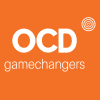Health anxiety, sometimes referred to as hypochondria or hypochondriasis, is the mental illness characterized by a preoccupation with and/or fear of having a severe illness. Individuals with health anxiety interpret normal bodily sensations as a sign of major illness, despite reassurance from medical professionals that they are healthy. Common symptoms of health anxiety include constantly worrying about your health, repetitively checking your body for signs of illness, seeking reassurance from medical professionals or the internet, and worrying that medical tests may have missed something,
Although health anxiety and obsessive-compulsive disorder (OCD) share the mechanism of obsessing and performing repetitive behaviors, they are considered separate illnesses. Health anxiety and OCD are often comorbid, but an individual can also have one without the other. The treatment for health anxiety is similar to OCD, however, and includes cognitive behavioral therapy (CBT) and a form of antidepressant called SSRIs. (OCDUK)
The following is a personal account of what it is like to deal with health OCD, courtesy of one of our authors, Sam:
I’ll never forget my 20th birthday. Up until that point my OCD had been more of a nuisance than anything, but that all changed when my best friend attended the celebrations with a rather large cold sore.
What’s the big deal? Well, that’s just it. There wasn’t one; she got cold sores often and was just going about her life as she would normally. On the other hand, something debilitatingly intense was brewing inside me. By the end of the night, we had mostly lost track of which drink belonged to whom and the uncertainty of whether I’d shared a glass with her became all-consuming for me. I silently curled up in the corner retracing every movement that I could remember making from the beginning of the night up until that point, all while the party raged on around me. It wasn’t a big deal to anyone but me.
And this “big deal” would come to consume my entire life for the next 2 years.
From that night in January 2019 onwards I have told myself too many times to count that cold sores are nothing to worry about. That statistically most people have at least one in their lifetime. That they don’t normally spread from person to person without direct contact. But no matter what I tried to remind myself or how I’ve tried to “logic” my way out of it, the panic has always returned time and time again.
I have bothered countless walk-in doctors with my concerns, only to have them look at me utterly confused about why I would be so worried about a cold sore in the first place. They do their best to ease my concern and remind me that cold sores are not a big deal, obviously. And, of course, this reassurance only helps momentarily before the secondary doubts set in about whether they might be wrong, or that maybe they didn’t check properly.
Nearly everyday for 3 years, my intrusive thoughts have convinced me at some point that I am most definitely developing a cold sore, that I will probably have one constantly for the rest of my life, and that nobody will like me because of it. These are all illogical statements that do not, in any way shape or form, line up with the facts of the situation; but they still manage to absolutely consume me. The panic is so intense that I begin to “feel” bodily sensations that my anxiety misconstrues as some kind of “proof” that my fear is coming true. I become hyper-aware of any tingle, itch, or other normal sensation in and around my lip area, completely convinced that they must be indicative of a cold sore. All I want to do is continually check my lips in the mirror to monitor for any visible changes, put on cold-sore ointment as a preventative measure, and Google repeatedly whether my symptoms are in line with that of a budding cold sore.
However, that is not what I actually do because I know that each of those actions is a compulsion that makes everything a lot worse in the long run. While checking or seeking reassurance may neutralize the anxiety in the short term, it only reinforces to my anxious brain that there is validity in the intrusive thoughts. So, instead, I sit with the facts. I bask in the unknown (and yes, this is by far the hardest part). And I remind myself, as my therapist often does, that trying to prepare for a disaster does not prepare me for a disaster.
I do everything “right”, so I’m told. But, 3 years later, I still deal with health anxiety every single day. OCD is an ongoing battle, but it is one battle that presents a new opportunity to triumph with every new day.
Samantha Cartwright & Maya Tadross
Co-Authors

